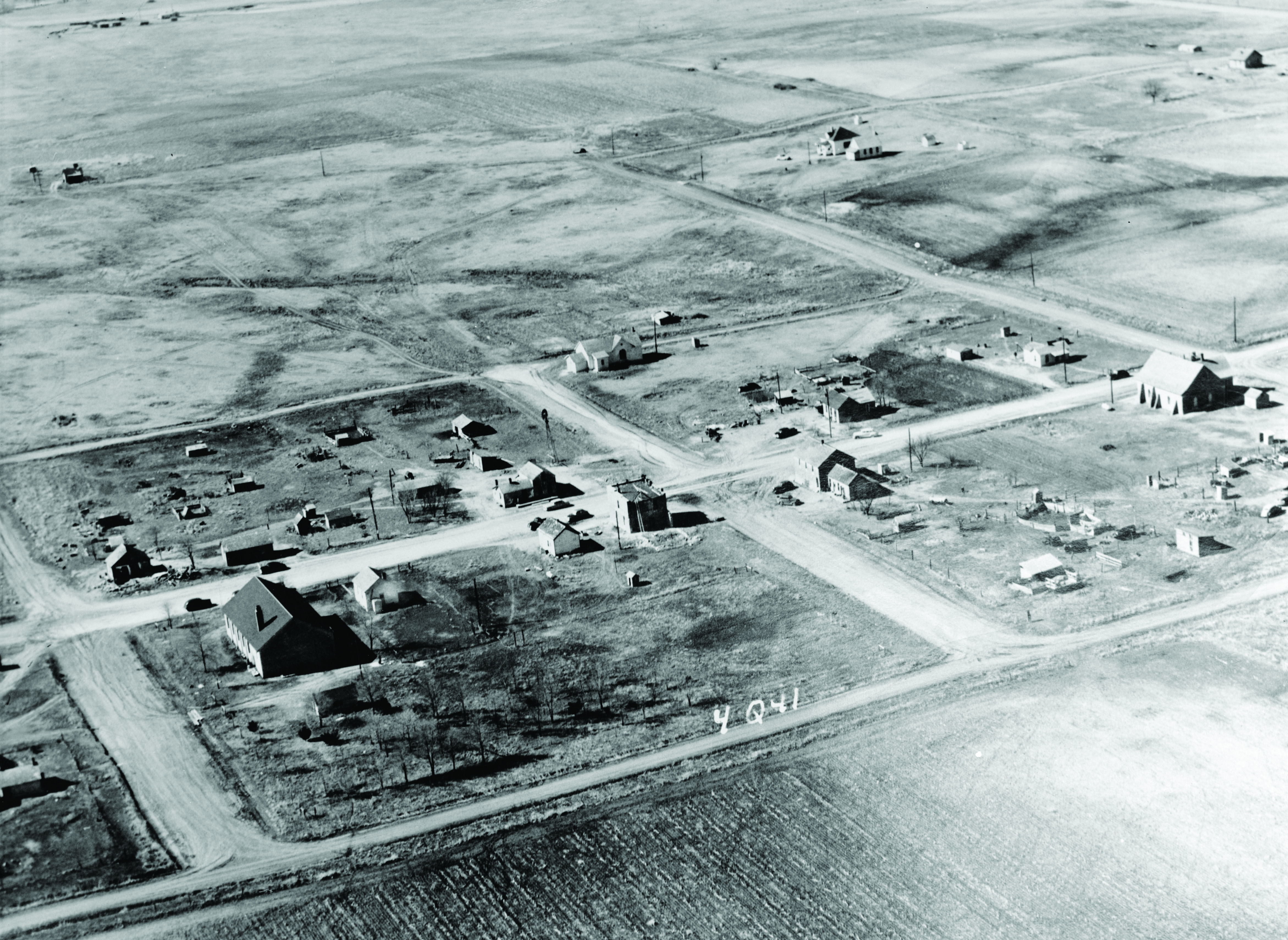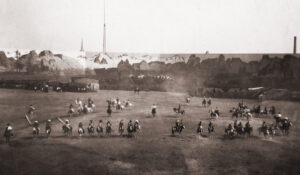The 1864 ballad “Wake, Nicodemus,” by abolitionist Henry Clay Work, likely inspired the name of Nicodemus, Kansas. Popular in minstrel shows after the Civil War, it relates the tale of a man who was brought to America on a slave ship and later purchased his freedom. Among those who recorded the lyrics were American folk singer and actor Burl Ives and English actor and singer Tim Curry. Lyrics differ among the various versions, but here’s a representative example:
Nicodemus, the slave, was of African birth
And was bought for a bagful of gold;
He was reckoned as part of the salt of the earth,
But he died years ago, very old.
’Twas his last sad request—so we laid him to rest
In the trunk of an old hollow tree;
“Wake me up!” was his charge, “at the first break of day—
Wake me up for the great jubilee.”
(Chorus)
The “Good Coming” is almost here!
It was long, long, long on the way!
Now run and tell Elijah to hurry up, Pomp
And meet up at the gum tree down in the swamp,
To wake Nicodemus today.
He was known as a prophet—at least was as wise,
For he told of the battles to come;
And we trembled with dread when he roll’d up his eyes,
And we heeded the shake of his thumb.
Though he clothed us with fear, yet the garments he wore
Were in patches at elbow and knee;
And he still wears the suit that he used to of yore
As he sleeps in the old hollow tree.
Nicodemus was never the sport of the lash,
Though the bullet has oft cross’d his path;
There were none of his masters so bold or so rash
As to face such a man in his wrath.
Yet his great heart with kindness was filled to the brim—
He obeyed who was born to command;
And he long’d for the morning which then was so dim—
For the morning which now is at hand.
’Twas a long weary night—we were almost in fear
That the future was more than he knew;
’Twas a long weary night—but the morning is near,
And the words of our prophet are true.
There are signs in the sky that the darkness is gone—
There are tokens in endless array;
While the storm which had seemingly banished the dawn
Only hastens the advent of day.





